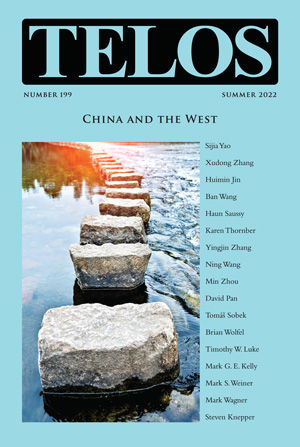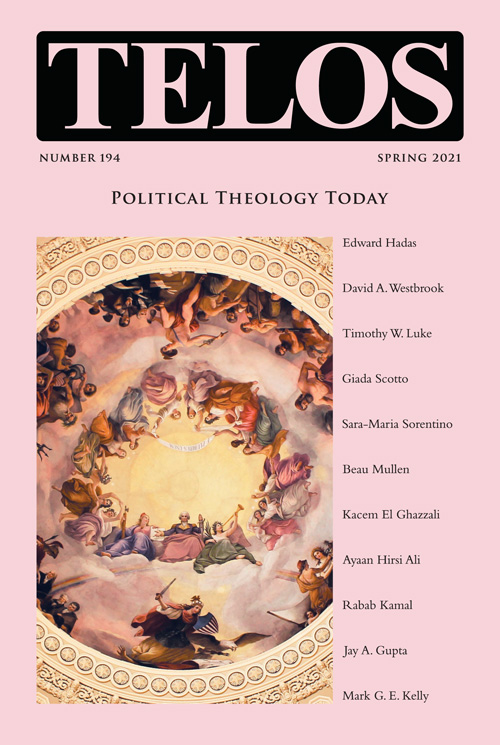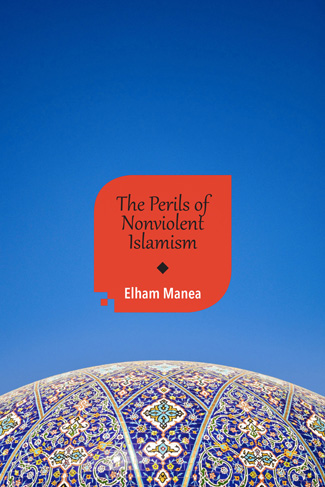 If we are seeing a rise in political violence today, is the main cause a decline in tolerance? On today’s episode of the Telos Press Podcast, I discuss the concept of tolerance with Tomáš Sobek, whose essay on the subject appeared in Telos 199. He argues that tolerance cannot be equated with liberalism, or rather that there are two ways of understanding the meaning of liberalism. While a positive form of liberalism contains a set of values that today would include support for abortion rights and gay marriage, a negative form of Liberalism (let’s call it Liberalism with a capital L) is limited to tolerating viewpoints or practices that one does not agree with. From this perspective, Liberal tolerance would include a conservative opposed to abortion who is willing to tolerate its practice. On the other hand, liberal (with a small l) tolerance would not include tolerating gay marriage, which the liberal in any case supports, meaning there is nothing to tolerate. Since one only tolerates something with which one is in disagreement, liberal tolerance would have to include something like tolerance of racism, even though one opposes it. Of course, it may be that some things are not to be tolerated, for instance murder, and some anti-abortion advocates would classify abortion as a form of murder and therefore intolerable, and liberal anti-racists might similarly classify racist prejudice as intolerable, to the point of advocating violence to oppose it.
If we are seeing a rise in political violence today, is the main cause a decline in tolerance? On today’s episode of the Telos Press Podcast, I discuss the concept of tolerance with Tomáš Sobek, whose essay on the subject appeared in Telos 199. He argues that tolerance cannot be equated with liberalism, or rather that there are two ways of understanding the meaning of liberalism. While a positive form of liberalism contains a set of values that today would include support for abortion rights and gay marriage, a negative form of Liberalism (let’s call it Liberalism with a capital L) is limited to tolerating viewpoints or practices that one does not agree with. From this perspective, Liberal tolerance would include a conservative opposed to abortion who is willing to tolerate its practice. On the other hand, liberal (with a small l) tolerance would not include tolerating gay marriage, which the liberal in any case supports, meaning there is nothing to tolerate. Since one only tolerates something with which one is in disagreement, liberal tolerance would have to include something like tolerance of racism, even though one opposes it. Of course, it may be that some things are not to be tolerated, for instance murder, and some anti-abortion advocates would classify abortion as a form of murder and therefore intolerable, and liberal anti-racists might similarly classify racist prejudice as intolerable, to the point of advocating violence to oppose it.
|
In today’s episode of the Telos Press Podcast, David Pan talks with Rabab Kamal about her article “The Curious Case of Islamic Reform: Why the Concept of Holy Violence Remains Disputed and How Nonviolent Islamism Is More Than Problematic,” from Telos 194 (Spring 2021). An excerpt of the article appears here. This article was part of a group of essays in Telos 194 that discussed Elham Manea’s new book The Perils of Nonviolent Islamism, available here for 20% off the list price. To learn how your university can subscribe to Telos, visit our library recommendation page. Print copies of Telos 194 are available for purchase in our store. Telos 194 (Spring 2021): Political Theology Today is now available for purchase in our store. Individual subscriptions to Telos are also available in both print and online formats.
To read more in depth from Telos, subscribe to the journal here. Writing at the Investigative Project on Terrorism website, Phyllis Chesler reviews Elham Manea’s The Perils of Nonviolent Islamism, now available from Telos Press. Save 20% off the list price when you purchase your copy in our store. An excerpt of the review:
In today’s episode of the Telos Press Podcast, Camelia Raghinaru talks with Jon Simons about his article “Divine Violence, Profane Peace: Walter Benjamin, Rabbis for Human Rights, and Peace in Israel–Palestine,” from Telos 192 (Fall 2020). An excerpt of the article appears here. If your university has an online subscription to Telos, you can read the full article at the Telos Online website. For non-subscribers, learn how your university can begin a subscription to Telos at our library recommendation page. Purchase a print copy of Telos 192 in our online store. Now available from Telos Press Publishing: The Perils of Nonviolent Islamism, by Elham Manea. Order the paperback edition today in our online store and save 20% off the list price. Also available now in Kindle ebook format at Amazon.com. In today’s episode of the Telos Press Podcast, posted here, David Pan and Russell Berman talk with Elham Manea about her new book.
by Elham Manea Elham Manea’s The Perils of Nonviolent Islamism describes the ways in which nonviolent forms of Islamist fundamentalism in European democracies lay the groundwork for Islamist terrorism. Through a persuasive mixture of autobiography, explanatory frameworks, case studies, personal interviews, and careful readings of source material, Manea details how Islamist groups have exploited the openness of democracies and multiculturalist attitudes in order to create closed Islamist communities. These groups today are transforming Islam in the West into a unified fundamentalist religion that ultimately promotes attitudes that lead to violence. Combining keen social theoretical analysis with critical self-reflection, Manea’s interrogation of Islamism sounds the alarm on a crisis that can no longer be ignored. |
||||
|
Telos Press Publishing · PO Box 811 · Candor, NY 13743 · Phone: 212-228-6479 Privacy Policy · Data Protection Copyright © 2025 Telos Press Publishing · All Rights Reserved |
||||




